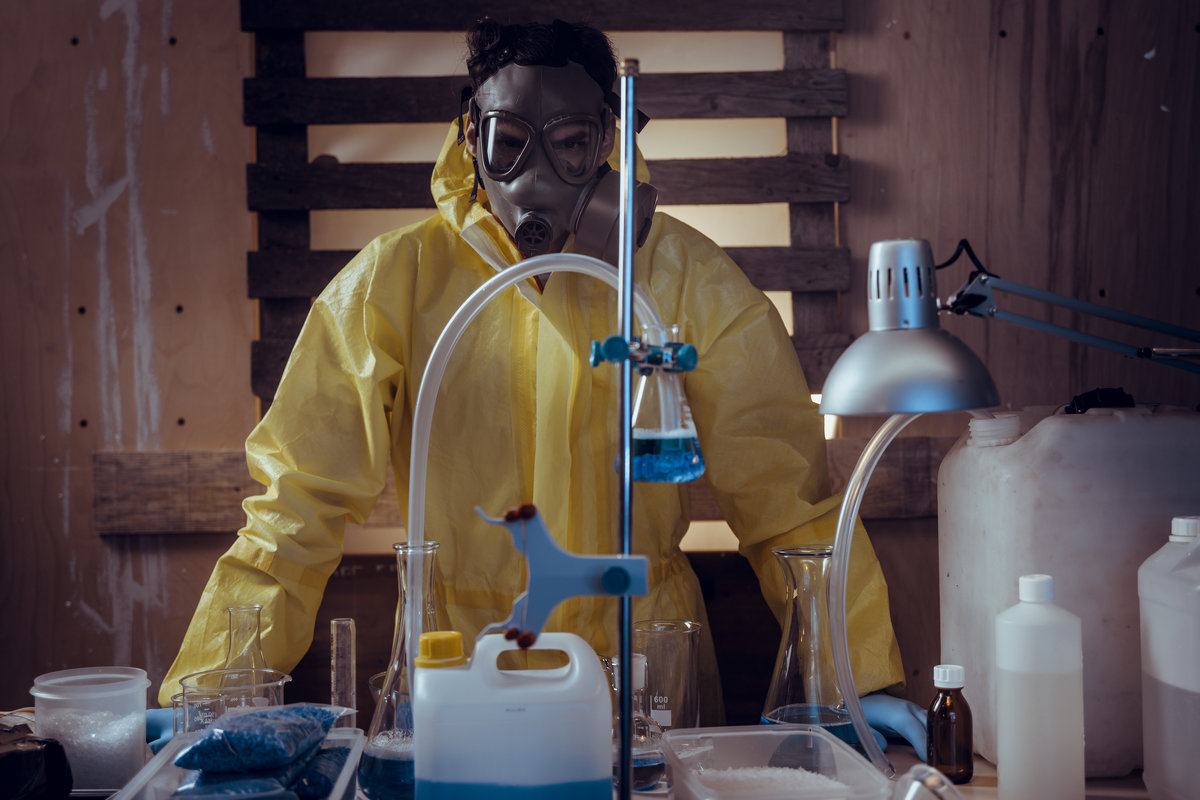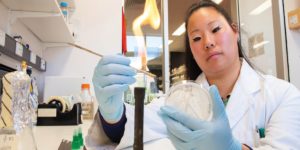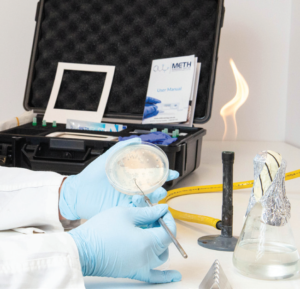
Families unwittingly living in houses used as methamphetamine labs could be exposed to significantly higher levels of the drug ice during Covid-19 lockdowns, as financial pressures brought on by the pandemic prevent relocation and limit resources available for environmental health agencies tackling the problem.
In a new study, Flinders University researchers Emma Kuhn, Dr Jackie Wright, Associate Professor Stewart Walker, Dr Harriet Whiley and Associate Professor Kirstin Ross analysed the public health challenges facing environmental health agencies investigating methamphetamine contamination in houses during the Covid-19 pandemic.
The study, published in the Australian and New Zealand Journal of Public Health, found that Covid-19 lockdown practices could increase the risk of severe health issues for families under lockdown, while also constraining environmental health agencies forced to tackle exposure sites with social distancing in place and stretched resources in the midst of a global pandemic.

PHD candidate & lead author Emma Kuhn says the study highlights how lockdown can increase the risk of exposure for people living in contaminated properties and could lead to significantly worse health outcomes if families are unable to leave as a result of economic hardship.
“Our study indicates families will inhale higher quantities of meth while spending more time indoors during Covid-19 lockdowns. The health problems can often be attributed to a range of other causes before contamination is considered and investigated by environmental health agencies. This is a concern with children at most risk due to their body size and physical contact with surfaces.”
Common health issues experienced by children and adolescents included cognitive effects (79%), sleeping issues (72%), respiratory effects (62%), and eye and skin irritation (55%).

“Social distancing measures and increased workloads for environmental health officers have impeded their ability to investigate exposure sites, with environmental health professionals in Australia and around the world responsible for a range of immediate Covid-19 issues. Their capacity to investigate contaminated houses is also impeded by social distancing measures and increased workloads.”
Associate Professor Kirstin Ross says the serious risks posed by increased exposure to methamphetamine highlight the importance of introducing legislation or funding a regulatory body to ensure compliance for risk minimization in Australia.
“Dealing with contaminated sites is a time-consuming and costly process but the risk to public health means investigations need to begin as early as possible.”
“The risk of exposure will only increase while environmental health agencies focus their resources on assisting with the pandemic restrictions. Therefore, sufficient resources, support and recognition of environmental health officers will enable them to identify and mitigate the risks early to minimize long term public health consequences.”

